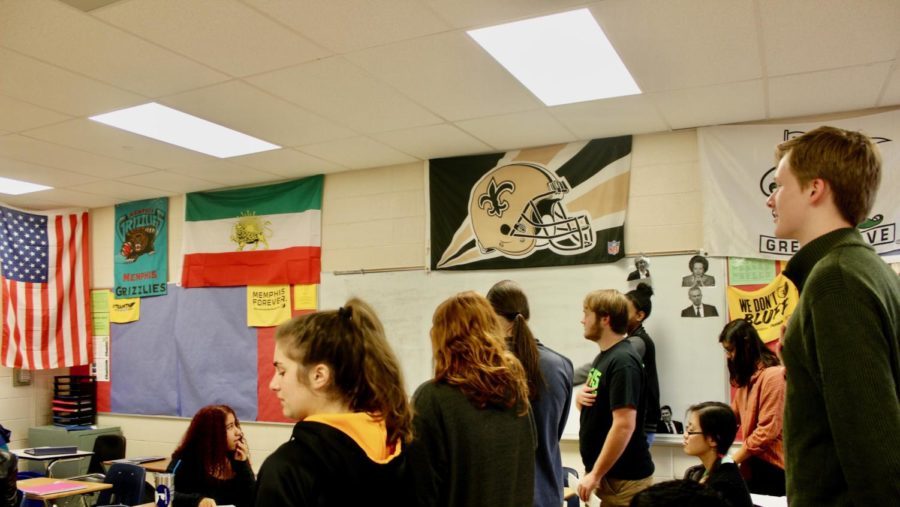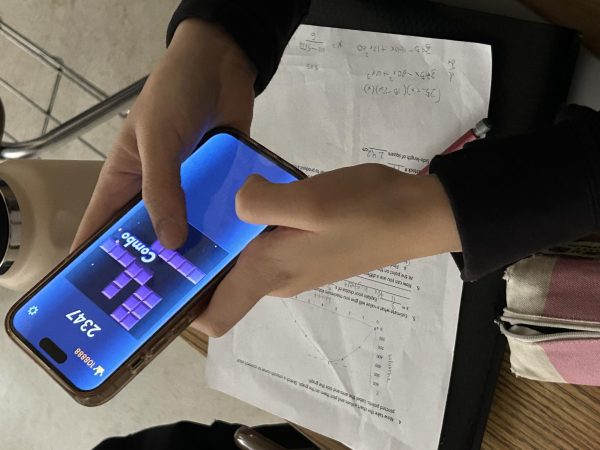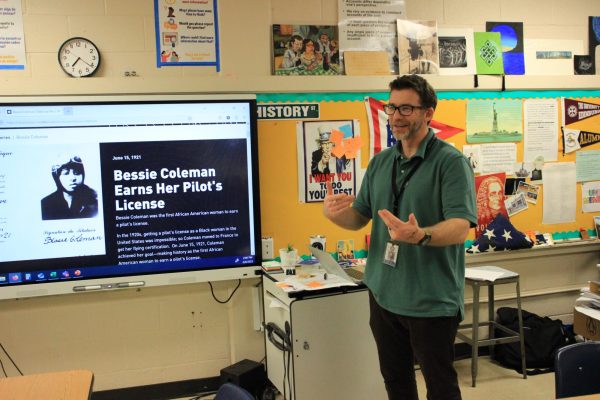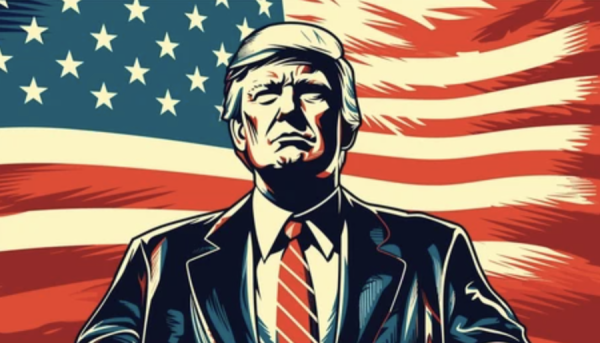National protests ignite student actions during the pledge
Students sit and stand during the daily Pledge of Allegiance.
From the football field to the classroom, nothing can truly commence until the American flag is recognized. Amid the recent controversy in the NFL, student habits during the Pledge of Allegiance have taken center stage. Whether they choose to sit or stand, their actions are an expression of their rights and beliefs as individuals.
White Station’s diverse student population has resulted in a wide range of beliefs and opinions about America’s Pledge all over campus. Luke Nalos (9) chooses to voice his love for America by standing up and saying the pledge every morning.
“I do this cause I love America,” Nalos said. “It’s my country-it’s a beautiful country.”
Although he chooses to honor the flag, he is not offended by actions unlike his own.
“I just care about my feelings and my emotions,” Nalos said. “I think everybody should have the right to speak their mind.”
While some agree completely with fully honoring the pledge, others feel that its meaning is not carried out in society today. Kiersten Horton (12) chooses to respect the flag but does not believe in the pledge’s validity.
“I don’t completely think that all that is said in the pledge is really practiced,” Horton said. “Like equality-we claim it, but it’s not really practiced as a whole.”
Rino Watanabe (11) shares the same stance but chooses to sit as her form of disagreement.
“I think that if you’re going to stand up for the Pledge of Allegiance, you should be 100% for it,” Watanabe said.
In addition, Watanabe believes that there is no true “liberty and justice for all.”
“I feel like I shouldn’t have to stand up for a country that doesn’t stand up for me,” Watanabe said.
“I think the protests during the pledge and the anthem have only brought attention to the individual and not to the problem,” Yager said. “Just protesting without suggesting any way to correct a situation or practice accomplishes very little. Be a solution, not a problem.”
Whether they protest the pledge or not, the issue allows students to exercise their freedoms as Americans and promotes the critical thinking necessary to shape future generations.
Your donation will support the student journalists of White Station High School. Your contribution will allow us to purchase equipment and cover our annual website hosting costs.








































